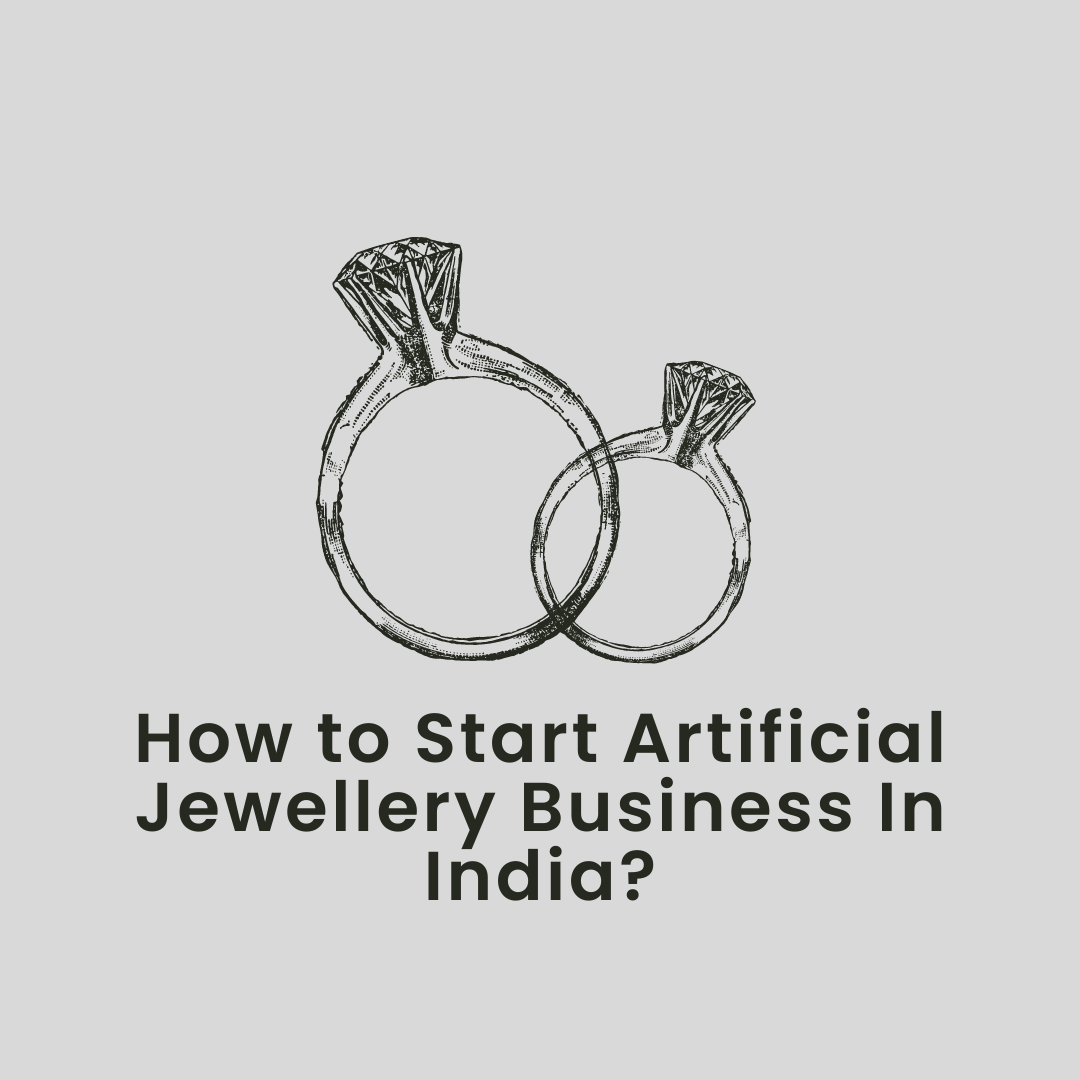Artificial jewellery, also known as fashion or costume jewellery, is a popular and affordable alternative to expensive gold, silver, and diamond jewellery. It has become a fashion staple for Indian women, who love to accessorize their outfits with various styles and designs of jewellery.
The artificial jewellery business has been growing rapidly in India due to the increasing demand for fashionable jewellery at affordable prices. In this article, we will discuss the artificial jewellery business in India in detail.
How to Start Artificial Jewellery Business In India?
Market Overview
The Indian artificial jewellery market is estimated to be worth over Rs. 15,000 crores and is expected to grow at a CAGR of 20% over the next five years. The growth of this market can be attributed to various factors, such as changing fashion trends, increasing disposable income, and the popularity of online shopping.
Types of Artificial Jewellery
The artificial jewellery market in India offers a wide range of products, including necklaces, earrings, bangles, bracelets, rings, and anklets. These products are made of different materials, such as metals like brass, copper, and silver, as well as non-metals like wood, plastic, and glass.
Manufacturing
The manufacturing process of artificial jewellery involves designing, casting, polishing, and plating. The jewellery is designed using computer-aided design (CAD) software and then cast in moulds made of silicon or rubber. The cast jewellery is then polished and plated with gold or silver to give it a finished look.
Marketing and Sales
Artificial jewellery can be sold through various channels, such as retail stores, online marketplaces, and social media platforms.
In recent years, the popularity of online marketplaces like Amazon, Flipkart, and Myntra has increased, making it easier for small businesses to sell their products to a larger audience.
Challenges
One of the major challenges faced by the artificial jewellery business in India is the competition from unorganized players who offer cheaper products. These players often compromise on the quality of the products, which can affect the reputation of the entire industry. Another challenge is the lack of standardized quality control measures, which can lead to a variance in the quality of the products.
In recent years, artificial jewellery has gained immense popularity in India, especially among the younger generation. One of the primary reasons for this is the affordable price of artificial jewellery compared to its precious metal counterparts.
Moreover, artificial jewellery allows for a wider range of designs and customization options, making it an attractive choice for customers. As a result, the artificial jewellery business has become a thriving industry in India.
Another factor contributing to the growth of the artificial jewellery business in India is the country’s rich cultural heritage. India has a long history of jewellery making, and various regions of the country have unique styles and techniques.
This diversity of styles has resulted in an extensive range of designs and patterns, making it possible for the artificial jewellery industry to cater to different tastes and preferences.
The artificial jewellery business in India is not limited to traditional designs alone. Many businesses have started offering contemporary and fusion jewellery, blending traditional designs with modern aesthetics. This approach has helped to attract a younger demographic, which prefers more modern designs.
The artificial jewellery business in India is not just limited to brick-and-mortar stores. With the rise of e-commerce platforms and social media, many businesses have shifted to an online business model.
This has allowed them to reach a broader customer base and reduce overhead costs. However, with the growing competition in the online space, businesses need to focus on building a strong online presence and offering unique and personalized experiences to their customers.
In recent years, there has been a growing demand for sustainable and eco-friendly products. The artificial jewellery industry has also started to move towards more sustainable practices, using recycled materials and focusing on ethical manufacturing processes. This trend has been particularly popular among the younger generation, who are more environmentally conscious.
To succeed in the artificial jewellery business in India, businesses need to focus on offering high-quality products at affordable prices, keeping up with the latest fashion trends, and providing excellent customer service.
Additionally, businesses need to build strong relationships with their suppliers and manufacturers to ensure a steady supply of raw materials and maintain consistent quality standards.
10 facts about the artificial fashion jewellery business in India
- India is one of the largest exporters of artificial fashion jewellery in the world, with the industry valued at approximately USD 3 billion in 2020.
- The market for artificial jewellery in India is growing rapidly due to the increased demand for affordable and fashionable jewellery.
- The Indian government’s focus on promoting domestic manufacturing and exports has provided a boost to the artificial jewellery industry in the country.
- The rising popularity of e-commerce platforms has made it easier for small-scale artificial jewellery manufacturers and retailers to reach a wider audience and expand their businesses.
- The majority of artificial jewellery manufacturers in India are based in the states of Maharashtra, Uttar Pradesh, and Rajasthan.
- Traditional Indian designs, such as meenakari, Kundan, and jadau, are popular in the artificial jewellery market.
- The Indian wedding industry is a significant consumer of artificial jewellery, with demand increasing during the wedding season.
- Artificial jewellery is often used as a cost-effective alternative to real gold and silver jewellery, especially for occasions such as festivals and weddings.
- The use of environmentally sustainable materials, such as recycled plastic and paper, in the manufacturing of artificial jewellery is gaining popularity in India.
- The rise of social media influencers and the increasing popularity of online fashion and lifestyle content has led to a surge in demand for trendy and unique artificial jewellery designs.
Conclusion
The artificial jewellery business in India is a thriving industry that offers a wide range of opportunities for entrepreneurs.
To be successful in this industry, one must stay up-to-date with the latest fashion trends, offer high-quality products at affordable prices, and market their products effectively through various channels.
With the right strategy and execution, the artificial jewellery business can be a lucrative venture in India.





Artificial Jewellery Business In India(Case Study)